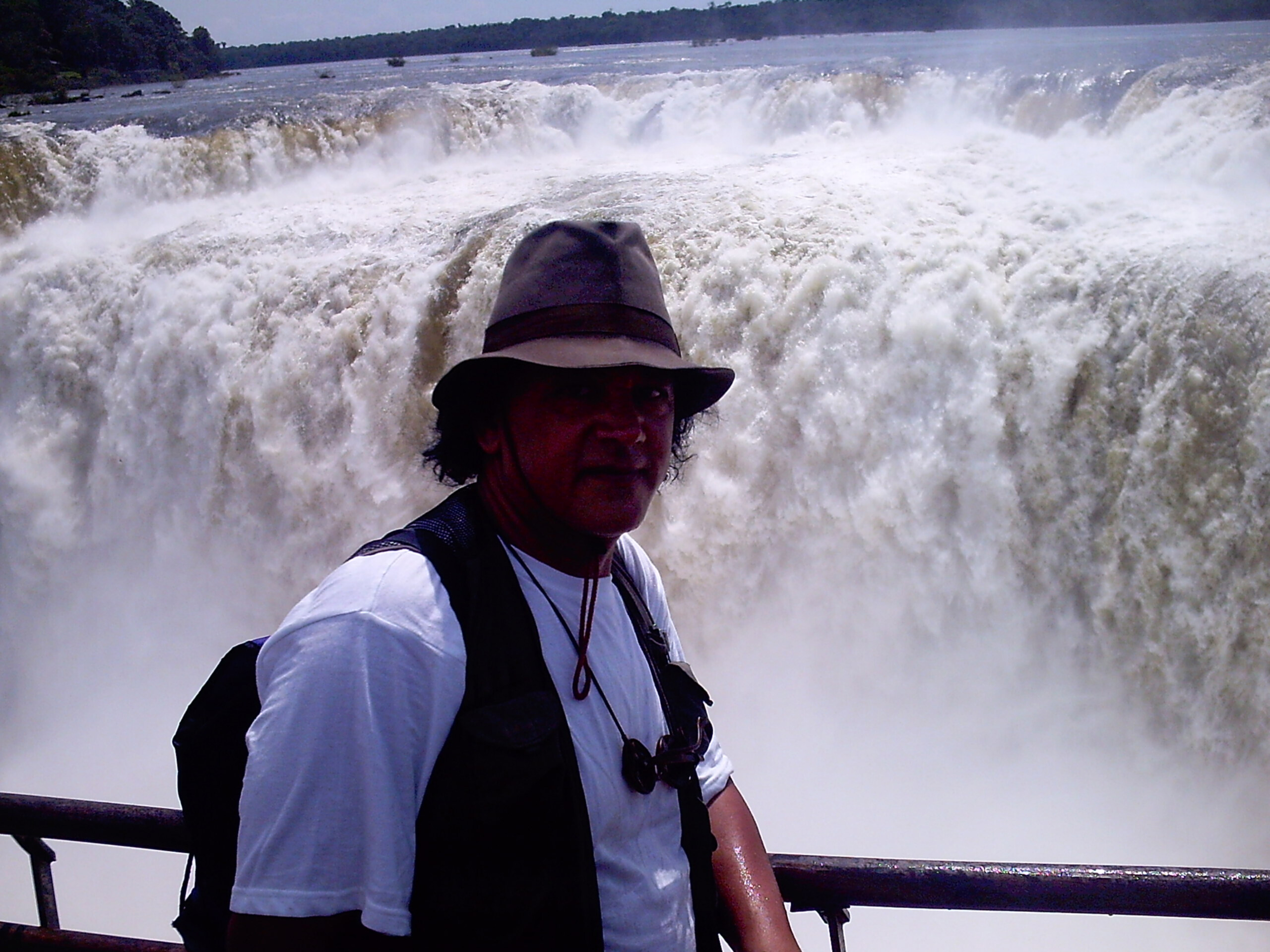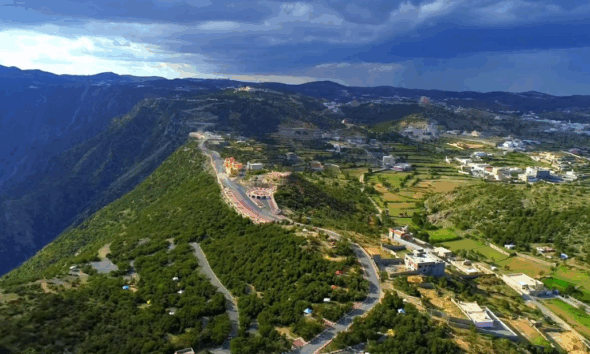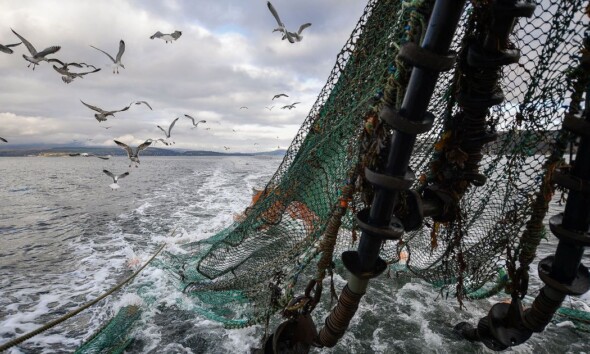Home » Interviews » Exploring the Unknown: A Captivating Interview with Ahmed El-Shahawi, The Contemporary Arab Explorer
Interviews
Exploring the Unknown: A Captivating Interview with Ahmed El-Shahawi, The Contemporary Arab Explorer
Published
2 years agoon
By
Huda
Arabisk London had the privilege of interviewing Ahmed El-Shahawi, “Egyptian Ibn Battuta”, a renowned contemporary Arab explorer. This exclusive interview delves into his vast array of practical experiences, tourism insights, safety protocols, and ethical considerations in navigating some of the most hazardous regions worldwide.
By: Mohsen Hasan
Ahmed El-Shahawi, widely known as “the Egyptian Ibn Battuta”, is a true adventurer whose exploits spanned many years. His pursuits are not driven by any desire for fame, fortune, or winning titles but rather by a thirst for knowledge, discovery, and exploration. He believes that his journeys were a means of unravelling the mysteries of the universe and life, and he certainly succeeded in his daring travels to some of the world’s most remote and perilous regions, spanning over 85 countries.
For El-Shahawi, adventure is not just a pastime for showmanship but a way of life and a path to gaining insights and experiences. His travels serve as a bridge of knowledge to enrich humanity. In an interview with “Arabisk London,” Ahmed El-Shahawi shared invaluable insights and details that are priceless for adventurers, travellers, and anyone with a thirst for adventure.
First, who do you consider, Ahmed El-Shahawi, to be a real explorer and adventurer? And what is the reason behind your association with Ibn Battuta?
A true adventurer and explorer is not someone who spends a week in London and another in Paris, but rather, it’s about embodying an idealistic spirit that transcends the pursuit of profit and gains from one’s travels and adventures. They possess a passion for travel and adventure to the point of spending all their funds to gain beneficial experiences for humanity.
The title “the Egyptian Ibn Battuta” was bestowed upon me by my Moroccan friends as a gesture of admiration. This is because they were pleased to learn that I was taking literary and travel inspiration from Ibn Battuta, despite the passing of seven centuries since his time. What impressed them the most was that I travelled without any material or investment goals, similar to Ibn Battuta’s spirit of exploration. In tribute to this legendary traveller, my friends bestowed upon me the same name as a token of their appreciation.
Why do you prefer your adventures to be individual rather than group-based?
Adventure is a very personal decision that rests solely on the individual adventurer. This undertaking encompasses all aspects of their safety and well-being. In the past, I have experimented with group-based excursions but have found them lacking in achievement and fraught with risk and error due to what is commonly known as “group dynamics.” In this context, the adventurer is subject to the control of their companions, which can lead to catastrophic mistakes. I experienced this firsthand when I ventured into the jungles of Sumatra with a group of adventurers and almost lost our lives due to conflicting opinions and decisions.
What is the primary hurdle that explorers face at the outset of their expedition, and how do they address it?
The most formidable challenge that explorers encounter is planning and gathering information. The lack of regional or international institutions that can assist the adventurer in this regard can present a daunting obstacle. However, as an experienced explorer, I have established and managed the International Association of Explorers and Adventurers, which provides valuable assistance and information to any adventurer or explorer in need. So, before setting off, extensive planning and research are essential.
This typically involves at least six months, if not a year, of meticulous preparation, including the examination of books and documents, as well as possessing a network of relationships and contacts with local guides, tourist operators, and friends in the targeted destinations. Personally speaking, I have learned to be thorough and resourceful in my planning, leveraging my network of contacts to ensure that my expeditions are both safe and rewarding.
Does an adventurer require more than one plan for a single adventure?
Absolutely. The expedition planning phase dramatically differs from the practical, on-the-ground reality that adventurers experience. Many unforeseen challenges arise, which cannot be anticipated during the planning phase. Thus, it is advisable to have two plans in place, a primary and a contingency. As an adventurer myself, I always follow this practice.
During one of my expeditions, I had planned to travel through Turkey and settle in Georgia for a month. However, the COVID-19 pandemic prompted the Georgian authorities to close their borders two days before my arrival, forcing me to switch to my alternative plan and adjust my itinerary.
What sets the explorer apart from the rest? And why do security and border authorities often view them with suspicion?
The explorers’ curious and adventurous attitude drives them to seek and uncover knowledge on a wide range of topics, from science to history, culture, and civilisation. This sets them apart from those who are content with the mundane. However, security agencies often see explorers as intrusive individuals who seek to unveil classified information.
As a result, they are frequently hesitant to disclose any specifics, worried that the information may be publicised and used against them. I once requested information about a tribe from an Ecuadorian authority, only to be met with a flat denial of the tribe’s existence, despite my knowledge of the tribe’s actual presence. I was directly threatened with a lethal shot by border guards. “If you return here,” one of them threatened, “we will shoot you.”
Throughout history, explorers have been misunderstood, accused of ulterior motives, and, at times, even mistreated. For example, when Marco Polo returned from China and told the Italians that the Chinese made dough strands and ate them, referring to spaghetti, which was not yet known in Europe. He was deemed insane and imprisoned on these charges.
Do adventurers’ and explorers’ priorities shift over time? And what were your priorities, Ahmed El-Shahawi, when you first embarked on your travels?
Certainly! The priorities of adventurers and explorers are as diverse as the individuals themselves. Some may set out on a quest to study human behaviour, while others may be captivated by exploring different cultures and belief systems. Some may be drawn to the botanical world, while others may be fascinated by the natural environment.
As adventurers gain experience and exposure to the world, their priorities may shift over time. For myself, my early expeditions were focused on the exploration of tropical forests, followed by the study of primitive tribes, traditional tribes, and urban environments.
As an intrepid explorer, how does Ahmed El-Shahawi approach packing for your journeys, and what advice would you offer to fellow travellers regarding their luggage?
The suitcase is a crucial and potentially hazardous component of any journey. A mistake in selecting or handling it can result not only in the cancellation of the trip but also in imprisonment. Purchasing travel bags from unknown sources or borrowing them without inspecting their concealed pockets could unknowingly embroil the owner in carrying illicit substances or materials that breach travel laws.
For my part, I would recommend opting for modern bags equipped with special security codes, inscribing personal information in a fixed and memorable location on the bag, selecting the nearest and most trustworthy address for the delivery of luggage, and placing the handbag in the front-facing compartment inside the aeroplane, not in the overhead compartment above the head, to facilitate monitoring.
What of the potential hazards and unwelcome surprises that may lurk within the contents of one’s luggage while travelling?
There are numerous pitfalls that adventurers may encounter when it comes to the contents of their travel bags. Some may unintentionally bring in gifts or prohibited food items, while others may face hefty fines for carrying seemingly innocuous items that violate the laws of the country they are visiting. For instance, a well-known explorer once paid a fine of 680 euros for carrying a piece of Rumi cheese, as most countries restrict the carriage of dairy products in any form, including sandwiches.
Similarly, restrictions on meat products are also common, while only one kilogram of honey is permitted (Very special in the Alpine region). While most European countries generally allow the carriage of fruits such as mangoes, apples, and bananas for consumption, Australia imposes a fine of up to AUD 400 for carrying even a small piece of fruit. Therefore, adventurers must familiarise themselves with the laws governing the contents of their travel bags to avoid penalties and unwelcome surprises.
What about the risks of transporting rare plants, animals, and electronic devices during your travels?
Exploring rare flora and fauna in their natural habitats is a passion that burns brightly in the hearts of adventurers. However, they must avoid attempting to transport or import these species, as travel laws strictly prohibit this. Such restrictions are in place due to the risks of spreading pests and diseases that could wreak havoc on ecosystems and cross borders with alarming ease.
In Australia, for instance, even a dried leaf inside a suitcase could result in serious consequences for the carrier, and travellers arriving from Thailand cannot bring ostrich feathers with them into Europe. Penalties for carrying animal or snake skins, shells, or natural stones are severe in Cambodia, as is transporting narcotics and plant roots.
Although dry seeds are permitted, electronic devices are best left at home, as they may contain hidden explosive materials or connections capable of causing catastrophic damage and destruction.
How did Ahmed El-Shahawi contribute to the discovery of medicinal plants for some persistent diseases?
Laws restricting the transfer of plant roots prevented me, as a traveller, from carrying numerous rare plants I had seen and discovered during my extensive journeys to over 85 countries around the world.
However, I did discover the Dendrobium flower during my adventure in the mountains of Sri Lanka, and my battle with malaria and treatment with the Artemisia plant led to the discovery of a drug for this severe disease. Nevertheless, I deeply respect such restrictive laws as they aim to protect both natural environments and human beings.
Is it allowed for an explorer to carry medication with them if they become ill while travelling?
Travel laws permit only three bottles of medication in times of illness, whether for an explorer or an ordinary traveller. If the illness requires injections, no more than three injections are allowed as well. For diabetic patients, only three months’ worth of medication is permitted.
According to travel regulations, medication transportation is only allowed in exceptional cases, such as when the patient is in one country and the medical practitioner is in another, with evidence to support such circumstances.
What are the rules for travelling with gold and cash?
At airports around the world, transporting gold can be a difficult task. Turkish expats in Germany, for example, are frequently subject to customs fees equal to the value of the gold they bring from their homeland. There are exceptions, of course, as gold within Europe is exempt from taxes and customs duties.
Except for a particular scenario within the European market, If a European were to transport a vehicle loaded with gold from Germany to Italy, or vice versa, they would not incur any fines. However, only a quantity of gold equivalent to 400 euros is authorised to travel through here, and anything over that amount is subject to customs taxes. As for cash, there remains some confusion regarding the matter. It’s often believed that there is a limit of LE 5,000 and $10,000 on the amount of cash allowed to be carried in or out of Egypt, and leaving Europe permits carrying 10,000 euros.
However, upon arrival at their destination airport, some travellers are surprised to learn that they must pay 25% of the value of the cash they’re carrying, which might equal 2,500 euros/dollars. This is due to travel regulations prohibiting the carrying of cash starting at 10,000 euros or dollars. To avoid being penalised, travellers must carry less than this amount, even if it is only one euro or dollar.
What are the necessities that an intrepid explorer must take on their voyages?
As a daring adventurer who traverses remote and uncharted jungles, there are two categories of tools that I require. The first category encompasses the essentials, such as a spare change of clothing for emergencies, alcohol for sterilising slow-healing wounds in hot and tropical environments, and a cigar (although I am not a smoker) for filling wounds resulting from the attacks of blood-sucking leeches.
These invertebrates are a type of possible pain-inducing worm that embeds its head under the skin, secreting hirudin from its saliva to thin the blood and numb the area before sucking the victim’s blood. Following leech removal, the wound continues to bleed due to hirudin, necessitating packing with tobacco packing to cleanse and compress blood vessels and arteries.
Finally, salt is required for occasional consumption to replenish fluids lost from perspiration and to avert sudden fainting. Moreover, non-essential tools serve particular purposes, such as a knife for cutting, a towel for drying, footwear, and a camera for photography and filming.
Do adventurers with dual nationality encounter difficulties during their journeys?
Certainly, and as such, I would advise any intrepid explorer against carrying any documentation indicating their possession of two nationalities. Every adventurer must acquaint themselves with the laws of each country before embarking on their expedition to avoid any unpleasant, sudden deportation.
For instance, Brazil, among other countries worldwide, refuse admission to some visitors who have yet to receive a yellow fever vaccination, even if they hold a visit visa. Therefore, certain conditions must be met before considering travel.
What advice would Ahmed El-Shahawi give to aspiring explorers on safety precautions?
Regrettably, there are no reliable sources for aspiring explorers to learn about safety standards and their requirements. As a result, their only feasible option is to seek the counsel of experienced adventurers or to read the works of historical or contemporary travel writers to acquire these precepts.
As a general and personal recommendation, I would advise all amateur adventurers to avoid flamboyant shows of bravado, excessive action, and media sensationalism, as well as imitation without any genuine travel goals.
What distinguishes an experienced adventurer from a novice regarding safety standards and environmental ethics?
There exist substantial and crucial dissimilarities in the approach between the two. For instance, a novice adventurer may need more experience to combat malaria in areas where vaccinations are not available, a skill that a seasoned explorer would have. As a result, an inexperienced adventurer would be foolish to travel to areas plagued by this sickness without the necessary treatment.
Additionally, a novice adventurer might rush headlong into natural habitats and jungles upon arrival, whilst an experienced traveller would exercise caution. They would give themselves plenty of time to become acquainted with the surroundings, integrate with its components and recognise any inherent hazards. This is a personal practice I follow in all my adventures.
Furthermore, an experienced adventurer may rely less on protective equipment for personal protection and self-defence, whereas an inexperienced one must. In summary, the main difference between a seasoned explorer and a novice adventurer is that the former has the experience required to safeguard themselves and take appropriate precautions for their safety, even with limited equipment and resources, whereas the latter does not.
Could you, Ahmed El-Shahawi, provide us with a realistic example of such a difference?
Undoubtedly! A seasoned adventurer like myself can venture forth into the dangerous wilderness of Australia, renowned for harbouring some of the world’s most venomous snakes, spiders and ferocious crocodiles, without the need for protective footwear, opting instead for simple sandals or flip-flops. I recall vividly one of my outings when my son insisted that I wear long-necked protective shoes out of genuine concern for my safety. I complied with his request and put on the shoes.
When my friend, the former National Geographic photographer Garry Trapani, caught a glimpse of me in the shoes, he burst out laughing. I saw that coming because no serpent in this world bites the palms or toes of a human being. Snakes strike by raising their heads 30-40 cm and aim for the ankle or higher regions.
As a result, this type of footwear is of no practical use to a seasoned adventurer who plies their trade for extended periods, acutely aware of the perils of such footwear on the skin of their feet and legs during an expedition that could last sixty days, in humidity levels exceeding 90%, resulting in skin melting and bodily collapse. Naturally, the scenario changes for a beginner adventurer, whom I strongly encourage not to forsake protective footwear because they lack the experience to keep their feet safe in such hazardous conditions.
How does Ahmed El-Shahawi assess instances of adventurous animosity towards the environment they are visiting?
The adventurers’ antagonistic behaviour towards the environment they are exploring warrants a critical evaluation. Any such behaviour targeted towards the environment must be unequivocally condemned, as it falls outside the cultural and humanitarian principles underpinning the core of adventure and travel. These actions demonstrate a profound misunderstanding of the core aim of exploration, which is to link mankind with its surroundings and work towards harmonious cohabitation rather than to spread animosity and aggression.
As I mentioned before, I don’t rush into the jungle; instead, I spend a week immersing myself in its intricacies, from its stillness to its commotion and even the sounds of its wildlife. This method allows me to train my senses, fine-tune my instincts, and develop my connection with the environment, all while avoiding potentially dangerous circumstances. For if I were to enter the jungle carelessly, the first venomous snake I encounter is likely to pose a significant threat to my safety.
What should a novice adventurer’s basic attitude towards the environment and its components be?
The novice adventurer must approach the environment and all of its constituents with a good attitude and a thorough grasp of their importance to humanity. This entails a constant dedication to the preservation of the natural environment and all of its creatures, both benign and predatory, poisonous and non-poisonous.
Based on my personal experiences and observations, I can declare that the essence of travel and adventure stands opposite to negativity and antagonism in all of its forms. Indeed, the environment itself possesses the power to punish explorers who exhibit violent behaviour.
Is there any evidence that the environment has retaliated against an outrageous adventurer?
There are countless cases of similar occurrences, with the infamous Australian explorer Stephen Robert Irwin. Irwin was known to profit from his vicious actions against crocodiles, snakes, fish, and other environmental entities. His life was tragically cut short when a stingray’s sharp beak struck him right in the heart.
It is important to note, however, that there is a difference between hunting for survival in extreme conditions, which is not considered an attack on the environment or nature, and engaging in violent behaviour towards it. I only engage in such actions in the most desperate of circumstances and with extreme caution, be it with snakes or other creatures.
What is an astounding yet perilous paradox that you discovered through your countless adventures?
It is that the most appealing destinations for explorers tend to be the most dangerous. In the world of wanderlust, the allure of beauty and the danger of the unknown are two sides of the same coin. Take South America, for instance; a region of unparalleled natural splendour, yet also a zone of grave danger for travellers and adventurers.
Many have met a gruesome end, ruthlessly attacked by violent gangs that roam the area under the cover of darkness. I must issue a warning to all those who seek to explore these territories of danger and uncertainty. One must be aware of a hazardous phenomenon known as the “fake police” or “police impersonators.” These imposters are known to approach unsuspecting travellers dressed in official attire and ask for their passports and other identification documents.
Once in their possession, they would summon the traveller to complete additional paperwork, only to reveal themselves as members of a professional gang. They will then demand access to the traveller’s credit card and password, draining their accounts of all available funds. It is worth noting that these criminals have no problem with taking a life, as demonstrated by the murder of an Austrian citizen who refused to hand over his password.
What, in your experience, Ahmed El-Shahawi, are the most treacherous stages and regions of travel for explorers?
The intermediate zones between the airport and the final destination are, without a doubt, the most perilous stages of travel, posing significant threats to travellers worldwide. This is especially true when it comes to taxi cabs, which account for roughly 90% of travel-related accidents. Unfortunately, many taxi drivers are members of criminal gangs who prey on unwary newcomers.
However, it’s worth noting that this is not the case in developed and sophisticated nations such as Germany, Austria, and other civilised countries. As a seasoned traveller who has encountered this danger, I strongly recommend opting for public transport whenever possible to ensure your safety.
As an experienced adventurer and seasoned traveller, does Ahmed El-Shahawi believe in the existence of a sixth sense and its effectiveness in protecting oneself from danger?
From hands-on experiences, I can confidently affirm that I do believe in the existence of a sixth sense and its potential to evade perilous situations. Adept explorers are sensitive to danger, which comes in handy when information is scarce. This innate talent is honed via rigorous training and practical experience, and in my opinion, explorers’ level of caution varies based on location and time, following this instinct.
An explorer may occasionally experience an overwhelming sense of impending doom, believing that if they ventured to a specific location at a specific moment, they would meet their demise. They may later realise, after acquiring complete information, that their intuition was correct. As a result, adventurers need to listen to their instincts and retreat if they feel an overwhelming desire to do so.
How often have you, Ahmed El-Shahawi, relied on your sixth sense in your personal experiences?
I’ve encountered the urge to retreat twice, and on both occasions, despite my strong-willed nature, I heeded the warning. The first instance occurred when I was within ten kilometres of entering an Indonesian village notorious for its cannibalistic practices. After learning about the danger posed by the inhabitants, along with original videos of their practices, I felt that embarking on this adventure would be a risky decision that could endanger my life.
I thus retreated, knowing that crossing this line would be dangerous. The second experience took place in the Philippines, on Palawan Island, near Brunei. While en route to a primitive village, I received news of a spreading epidemic among the villagers, causing them to fall asleep and die. Several journalists had already lost their lives as a result.
Even though I was aware of the risks, I decided to proceed. However, while riding on a nearby bus, I had a vision of my young daughter standing in front of the vehicle, pleading with me to reconsider. Overwhelmed by emotion, I got off the bus while it was still moving. I was grateful for my decision to retreat on both occasions, as it undoubtedly saved me from harm.
Is it still possible that tribes that practise cannibalism exist in our modern world?
Indeed, some of these savage groups continue to exist today, primarily in two distinct regions of Indonesia. The first of these regions was situated in the middle of Sumatra, approximately 300 kilometres south of Medan city. However, the people of this area have since intermingled with the indigenous inhabitants, renouncing their primitive practices, and thus, no longer exist in their previous form.
The second region I had intended to visit but ultimately retreated from represents the last known group of cannibalistic tribes in the world. These tribes are located in the Irian Jaya region, situated in the western half of Indonesia’s last island, encompassing the eastern half of Papua New Guinea, near Australia. It is important to note that Indonesia boasts a staggering 17,000 islands.
Finally, what is the current mission that occupies the mind of the Egyptian Ibn Battuta?
I am currently in Europe in 2023, engaged in a significant project that I cannot disclose at this time. This task demands my undivided attention and a prolonged period, which may take up to six months or even a year. I remain hopeful that all my efforts will be fruitful and will undoubtedly release its details at the appropriate time.
You may like
-


Ahmed Reyad, an Egyptian Face-Reading Expert: Personality Analysis Inspires Self-Improvement and Societal Change!
-


Technical Expert Omar Ashraf to Arabisk London: I Hope to Establish a National Academy in Saudi Arabia to Educate Civil Aviation!
-


Season Five of Abdul Aziz’s Men Documentary With Exclusive Details

Adeem Al-Fursan: A Novel Development Project in Riyadh

Ahmed Reyad, an Egyptian Face-Reading Expert: Personality Analysis Inspires Self-Improvement and Societal Change!

Saudi Arabia’s Cold Tourism in 2025

Humain, an AI Startup, is Launched in Saudi Arabia

Saudi Arabia Addresses Overfishing

